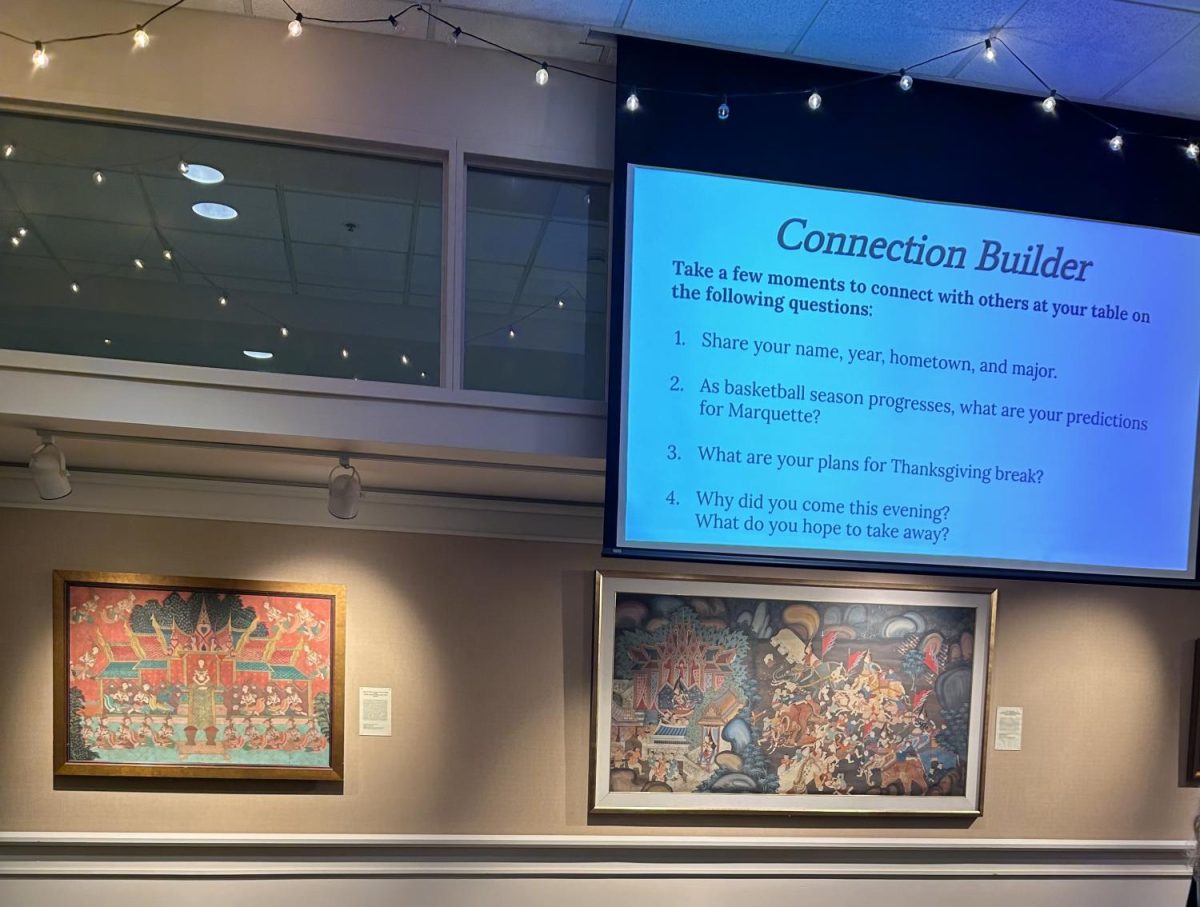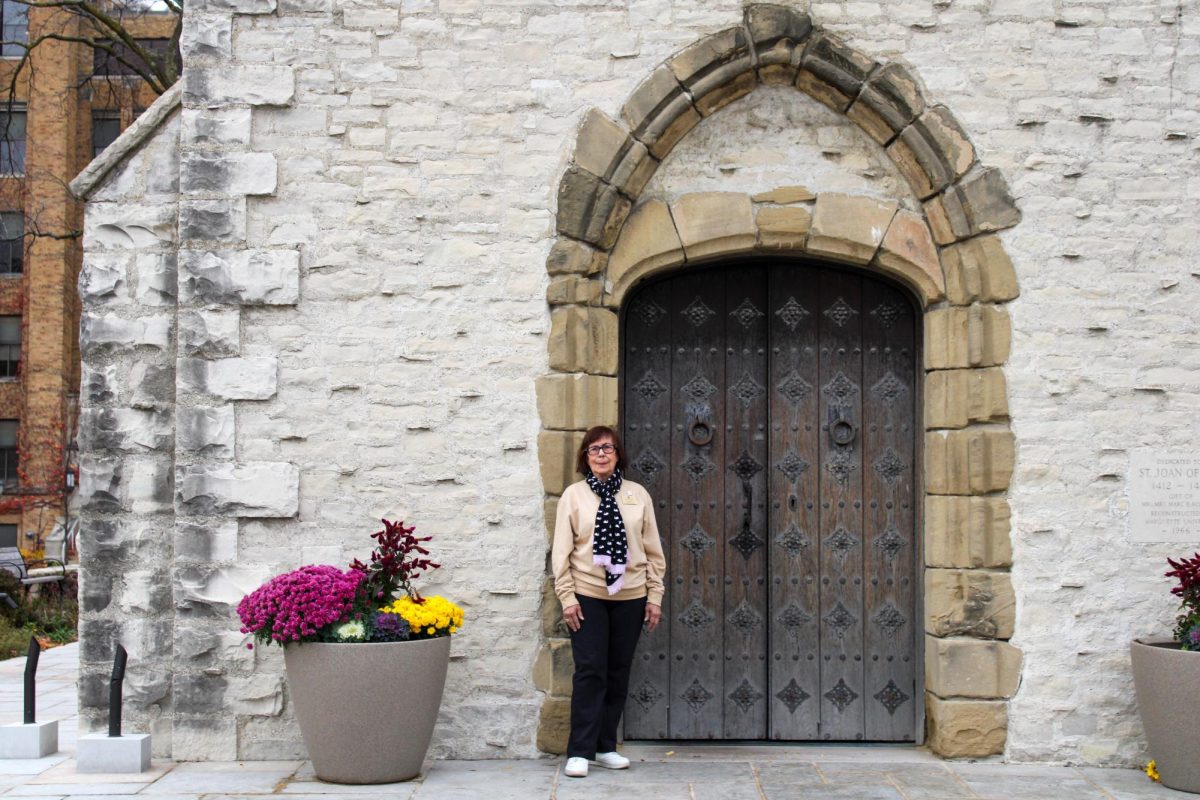There are some people who can write, read or study for hours at a time without ever having to get up. I am not one of them. I am always getting bored with my work, getting up for a drink, getting up to stretch my legs. After reading some very dry “Business Law” in the library, I decided I needed a break to pace around the stacks. I walked up and down the rows of books in the fourth floor reading room, lazily looking at the spines, pulling out the books that caught my eye and reading the backs. This is how I found “Robert Elsmere.”
I never heard of the book or its author Humphry Ward, but the questions it asked were familiar. It is about a young Anglican priest who loses faith in traditional Christianity after he is faced with “European biblical criticism, geological and evolutionary discoveries and social liberalism.” None of this makes his marriage any easier – his wife Catherine reads the Bible literally.
I was intrigued, so I checked it out, and spent even less time in “Business Law” as I made my way through the novel.
Ward seems to have doubted that traditional Christianity could weather the storms of secular study. History shows she wasn’t entirely wrong. In both America and Britain, the Christian population continues to erode as more and more people identify with no religious affiliation.
I think this troubled her. To find out how Christianity might fit into the new, secular world, she used the novel as a laboratory. Her process: Take a devout Christian, expose him to the latest findings in history, biblical criticism and evolutionary theory and watch what happens next. Her guinea pig: an earnest parson. Her conclusion: something’s got to give.
A belief in the miraculous, it turns out, is what gives. Elsmere becomes deeply interested in Christian history, and the more he learns, the more he comes to see the Church and its teachings as something constructed by people who were doing the best they could to understand the world and the divine without the benefit of modern science.
“So he doesn’t believe in a divine Jesus?”
Jame Schaefer asked me as I explained the novel’s plot to her, “No. He sees Jesus as a Buddha figure, mortal, but somebody to learn from and to imitate.”
Schaefer is an associate professor in the theology department at Marquette. Her research focuses on ecological ethics and the intersection of religious faith and science. She and a physicist teach a seminar on the origin and nature of the universe together – this is where we first met when I decided she would be an excellent person to interview for this piece.
Schaefer suggested that Elsmere’s previous faith depended too heavily on miracles.
“Catholics would not interpret the Bible literally as scientific fact,” she says. To do so would be to embrace a “thin and risky faith that does injustice to God and to the inspired authors.” Instead, Schaefer encourages Christians to look for “the deepest possible meaning” when they read the Bible.
But in all this, she and Elsmere have more in common than not. Even after he stops believing in Christ’s divinity, Elsmere still sees the Bible as an important source of meaning and moral instruction. They also agree that science could never “prove a miracle” and that God does not “interrupt the natural order,” to borrow Schaefer’s phrases.
But where does all this leave Jesus? For Elsmere, since miracles cannot exist, the Resurrection is out of the question. For Schaefer, it is not so simple.
She would classify Christ’s Incarnation, Resurrection, and Ascension not as miracles, but as “divine acts by a divine being.” Schaefer says that to think of them otherwise would be to “reduce them to interventions in nature,” when we should understand them as something transcendent: “God’s self gifts.”
Is this splitting hairs? Maybe. But that’s theology – it’s complex. And this complexity is another reason that Elsmere seems to shy away from traditional Christianity. None of it really seems to matter to the lives of regular people.
And when we look across the religious diversity at Marquette and in the world, doesn’t he seem to have a point? Does the abstract way people think about God really impact the way they live?
I brought this question to the Rev. Ronald Bieganowski, a Jesuit who has been teaching English at Marquette since 1976. He reminded me that the doctrines many of us see as being imposed from above had egalitarian roots in the early Church. He also believes that the faith of the Church is the faith of the people of the pews.
Bieganowski was largely uninterested in talking about “Robert Elsmere” when I interviewed him. He wanted to know why I was drawn to it in the first place. “That might be the better article,” he said. He’s probably right – he’s been reading and writing longer than I have.
The book grabbed my attention because the questions and doubts it explores are ones I hear my friends and peers voicing – and ones I ask myself. Bieganowski reassured me that doubt is a normal part of faith, and he offered one of his favorite prayers: “Lord, I believe; help my unbelief.”
As it turns out, this prayer comes from Mark’s Gospel. A man comes to Jesus and asks him to cast out his son’s demon.
“Anything is possible with faith,” Jesus tells him, maybe a little smugly.
“I do believe; help me overcome my unbelief!” the man exclaims, exasperated.
It’s exactly the sort of story that would have put Elsmere on edge. He would have gotten hung up on whether or not demons really exist.
But if we follow Schaefer’s advice and look for “the deepest possible meaning,” it has a very practical application to people like me who find themselves asking larger questions about faith. It says it’s OK to have questions, to ask for help.
Ward’s novel ends with Elsmere founding a new sect resembling the Unitarians, he dies shortly thereafter. I thought it was strange that he would found another church, given he had so many criticisms of the institutions that already existed.
But I suppose he knew something that I learned in my conversations with Schaefer and Bieganowski: Faith and spirituality need community to grow. You can pose questions to yourself, but you’ll get better answers if you can learn from others’ experiences and perspectives. And you certainly can’t learn forgiveness or compassion on your own. To pray, to serve and to love require that we step outside of ourselves, and Ward understood this well:
“Paradise is here, visible and tangible by mortal eyes and hands, whenever self is lost in loving, whenever the narrow limits of personality are beaten down by the inrush of the Divine Spirit.”



